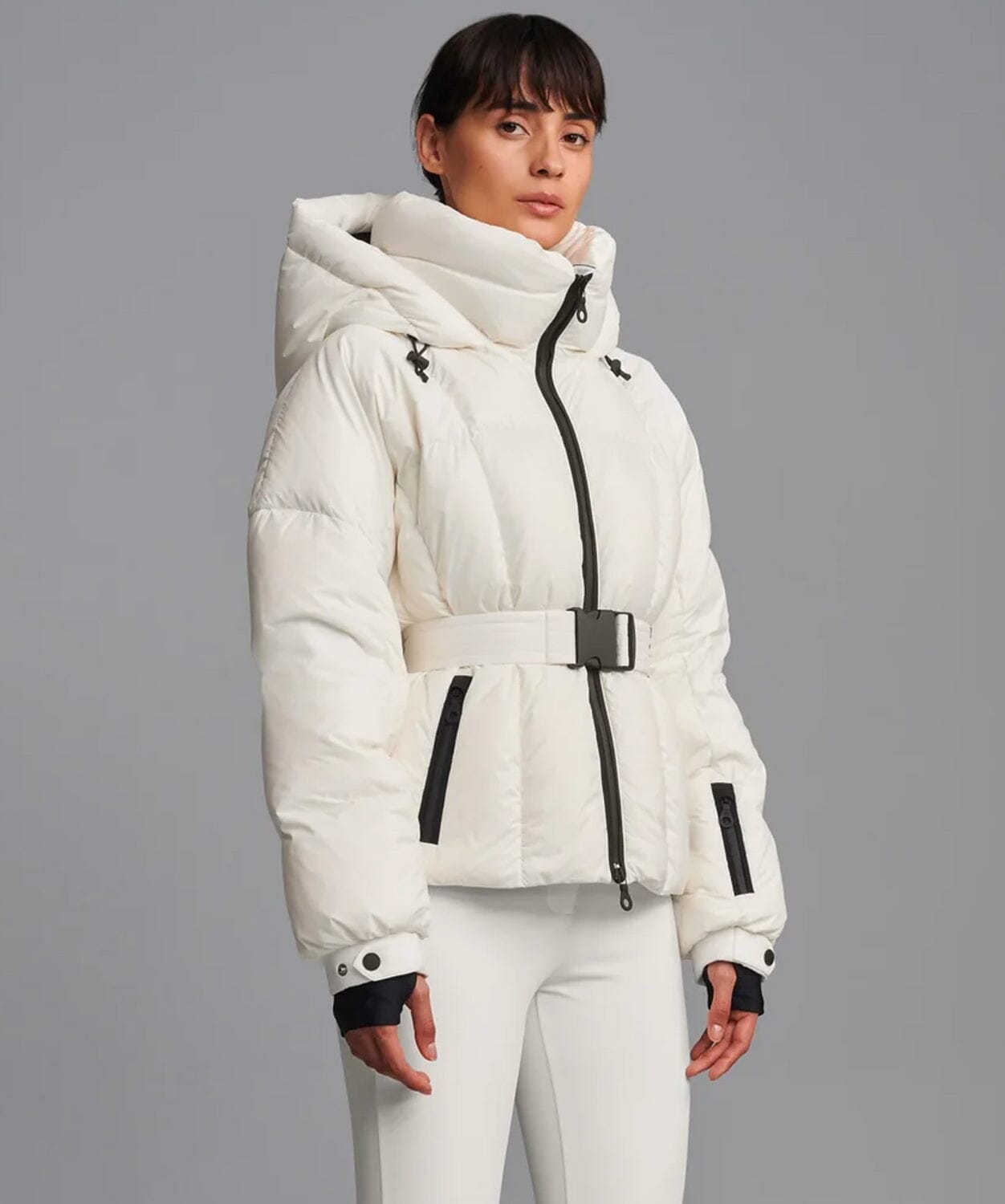
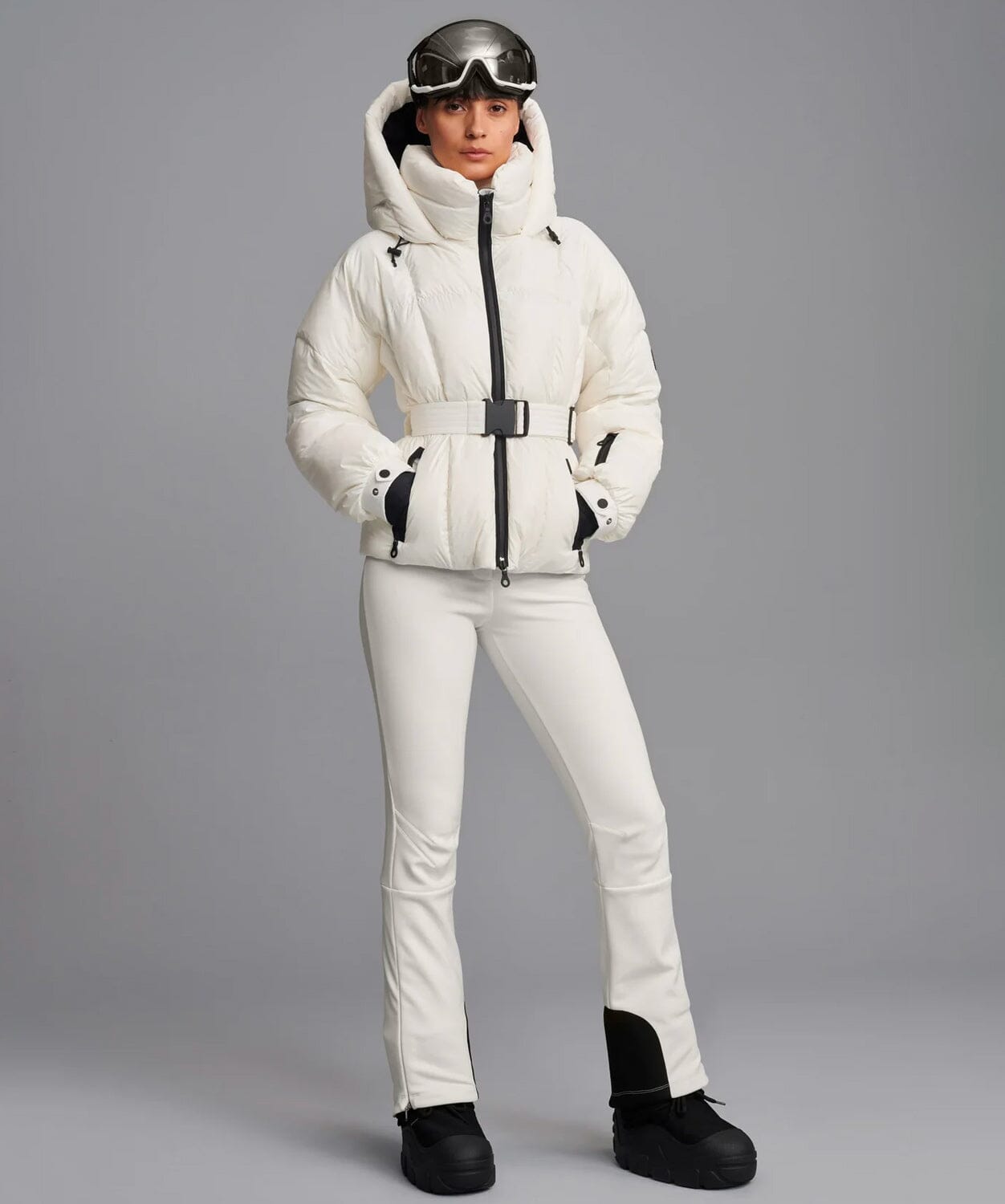
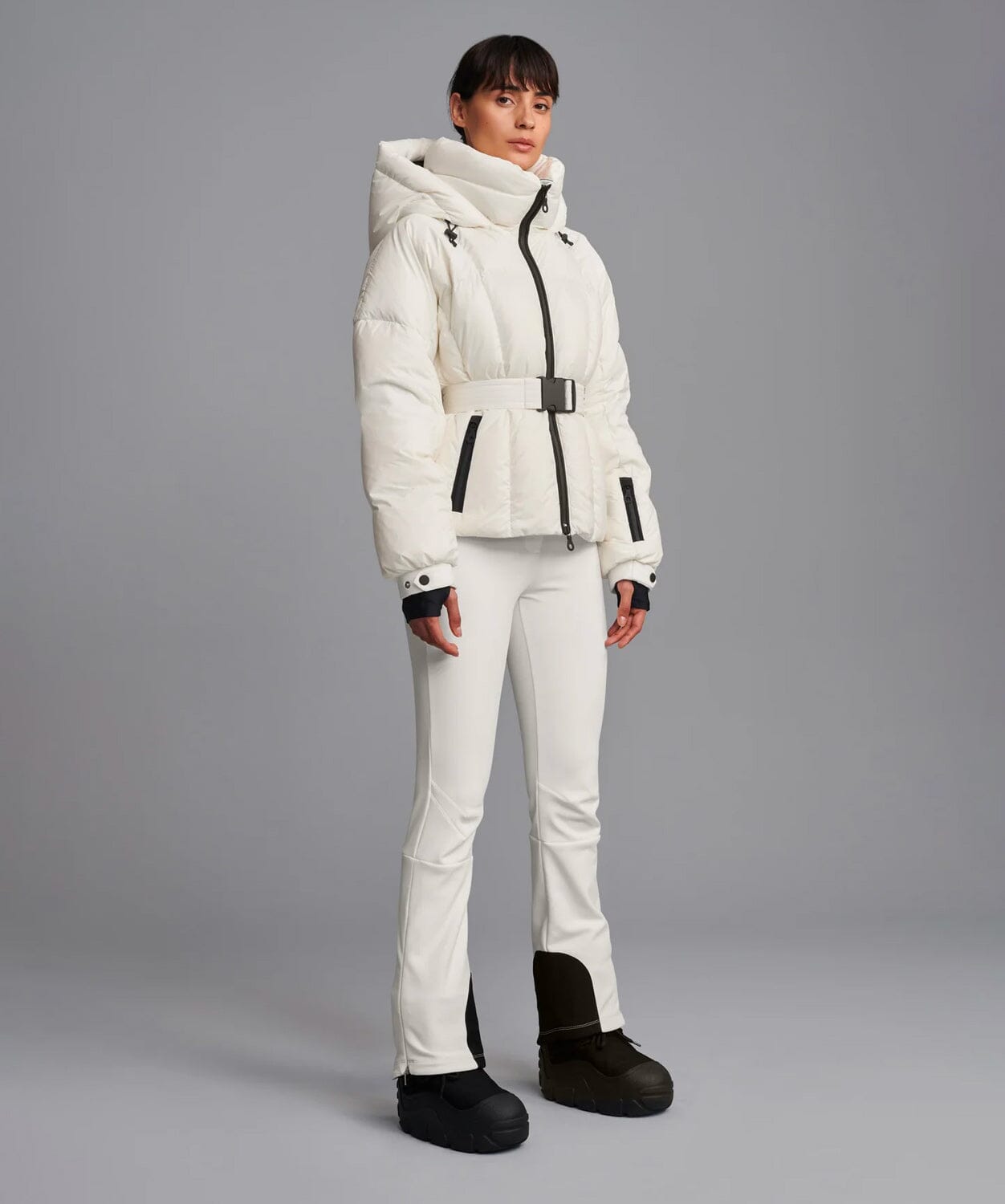
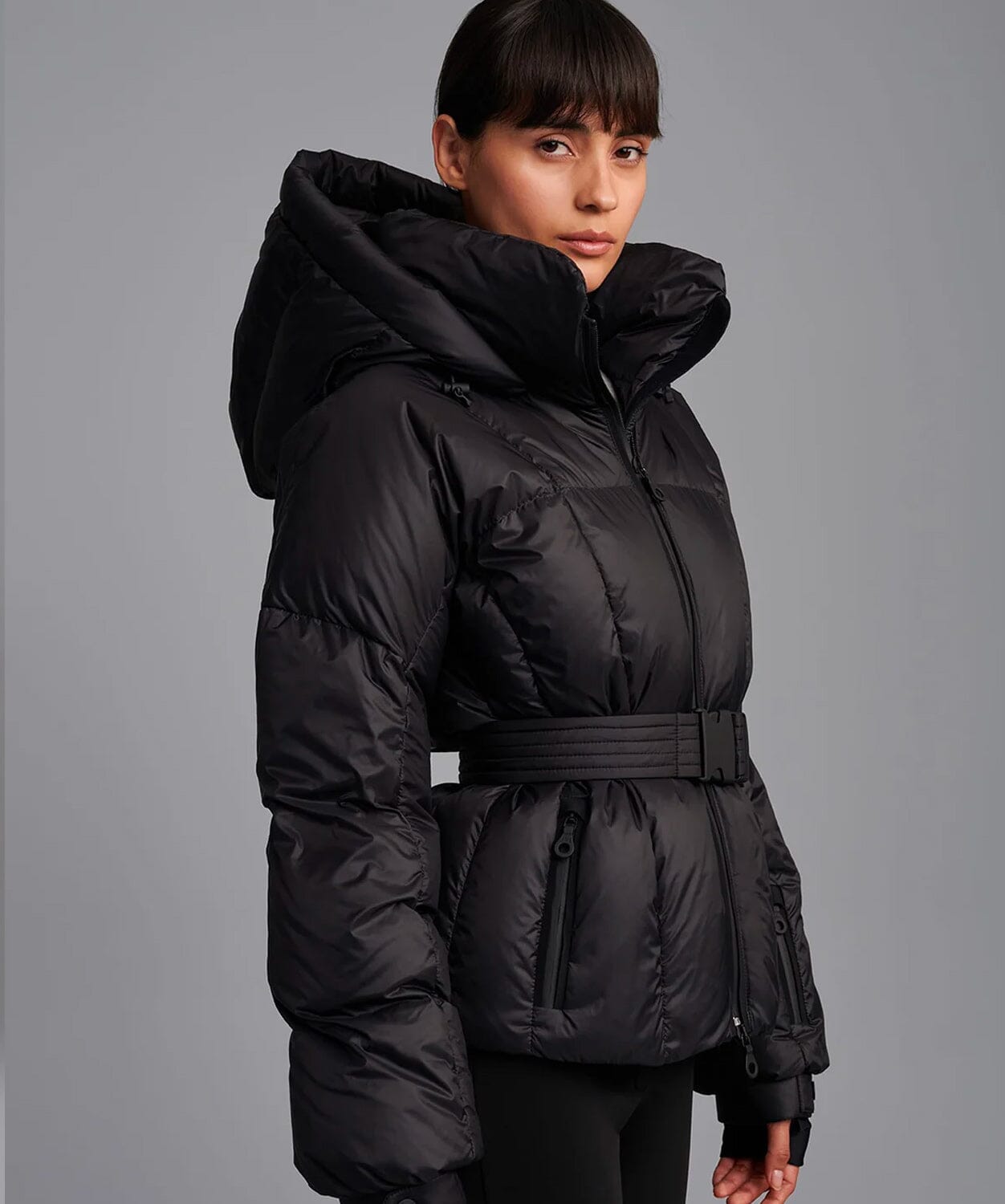
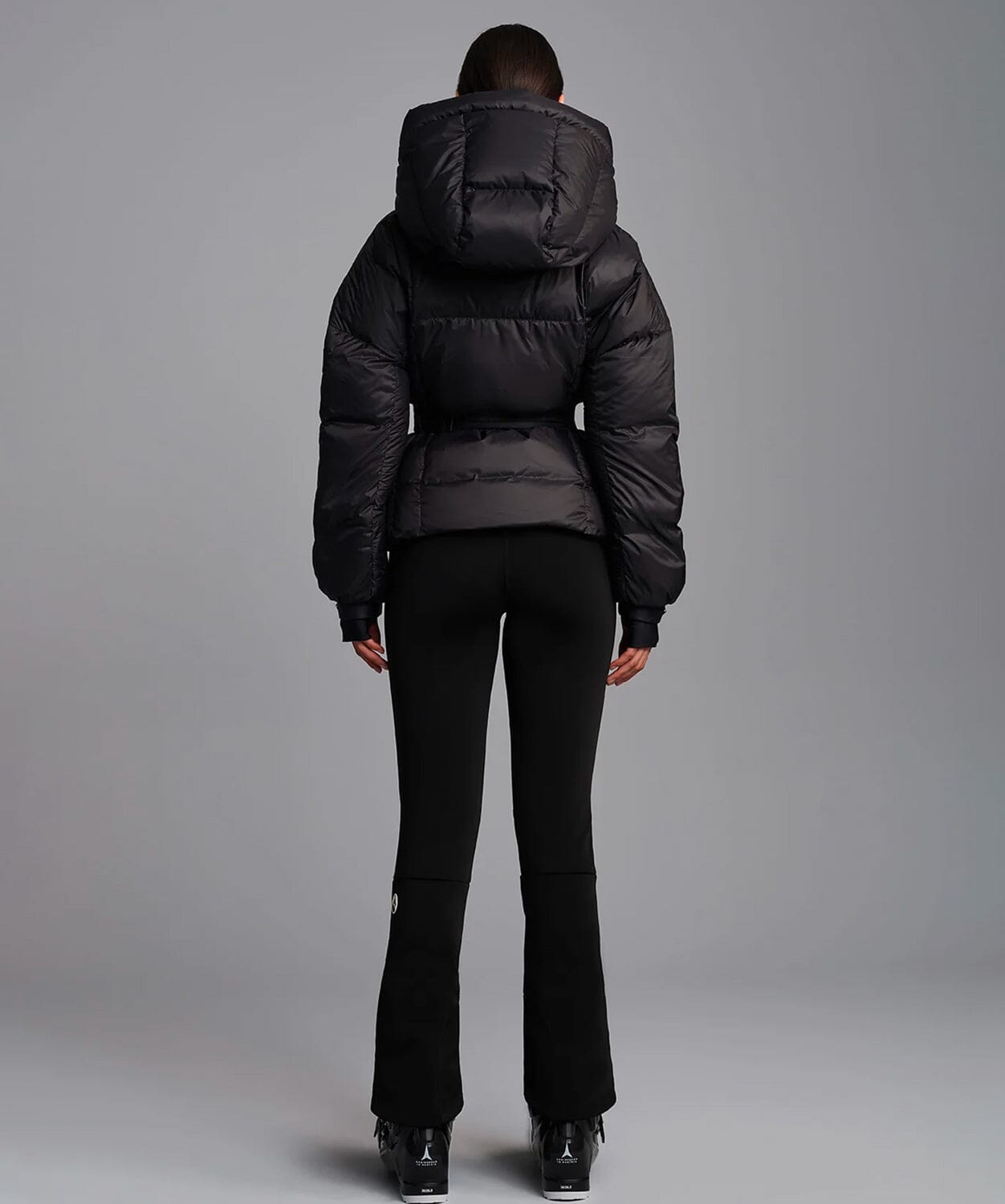
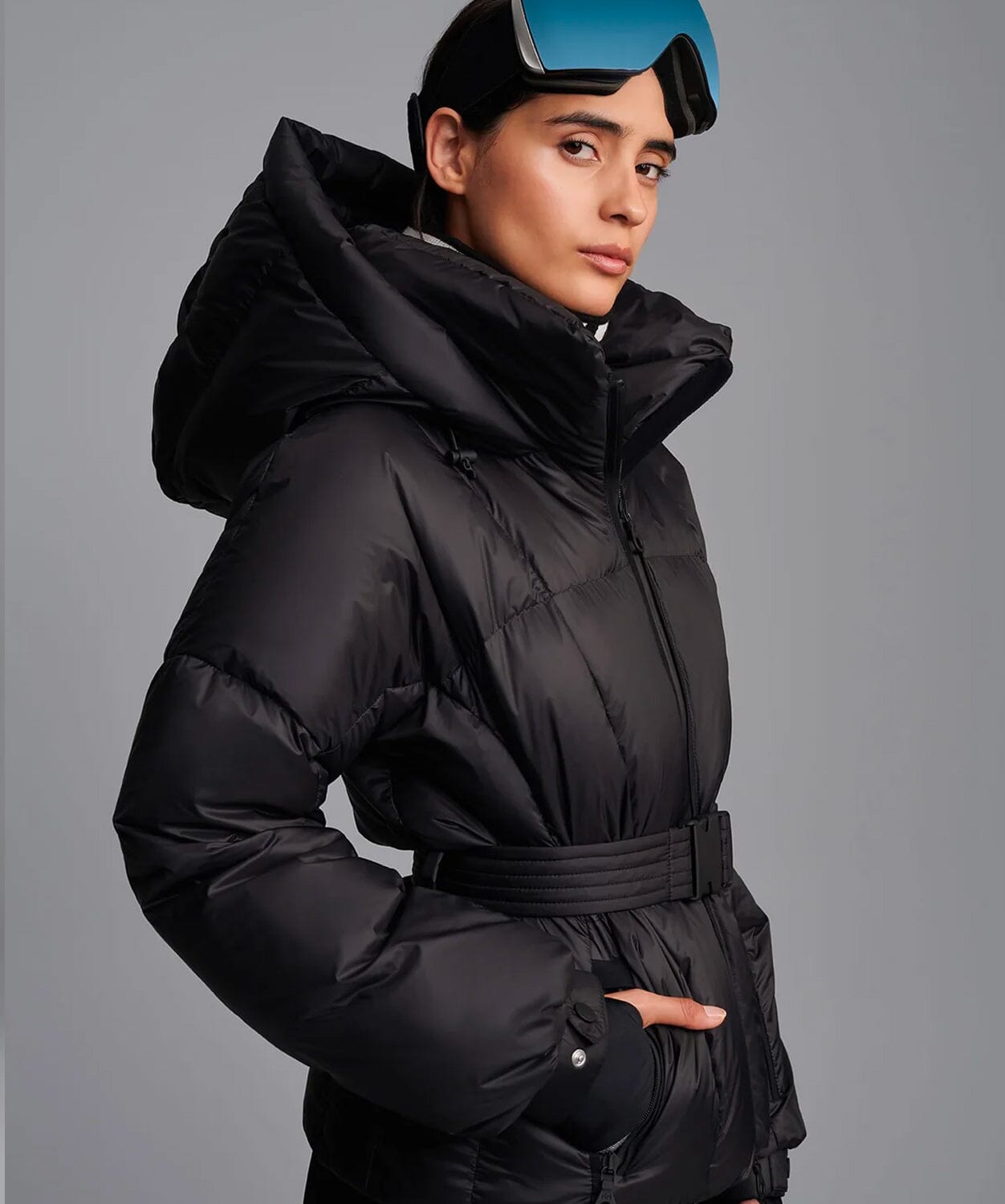
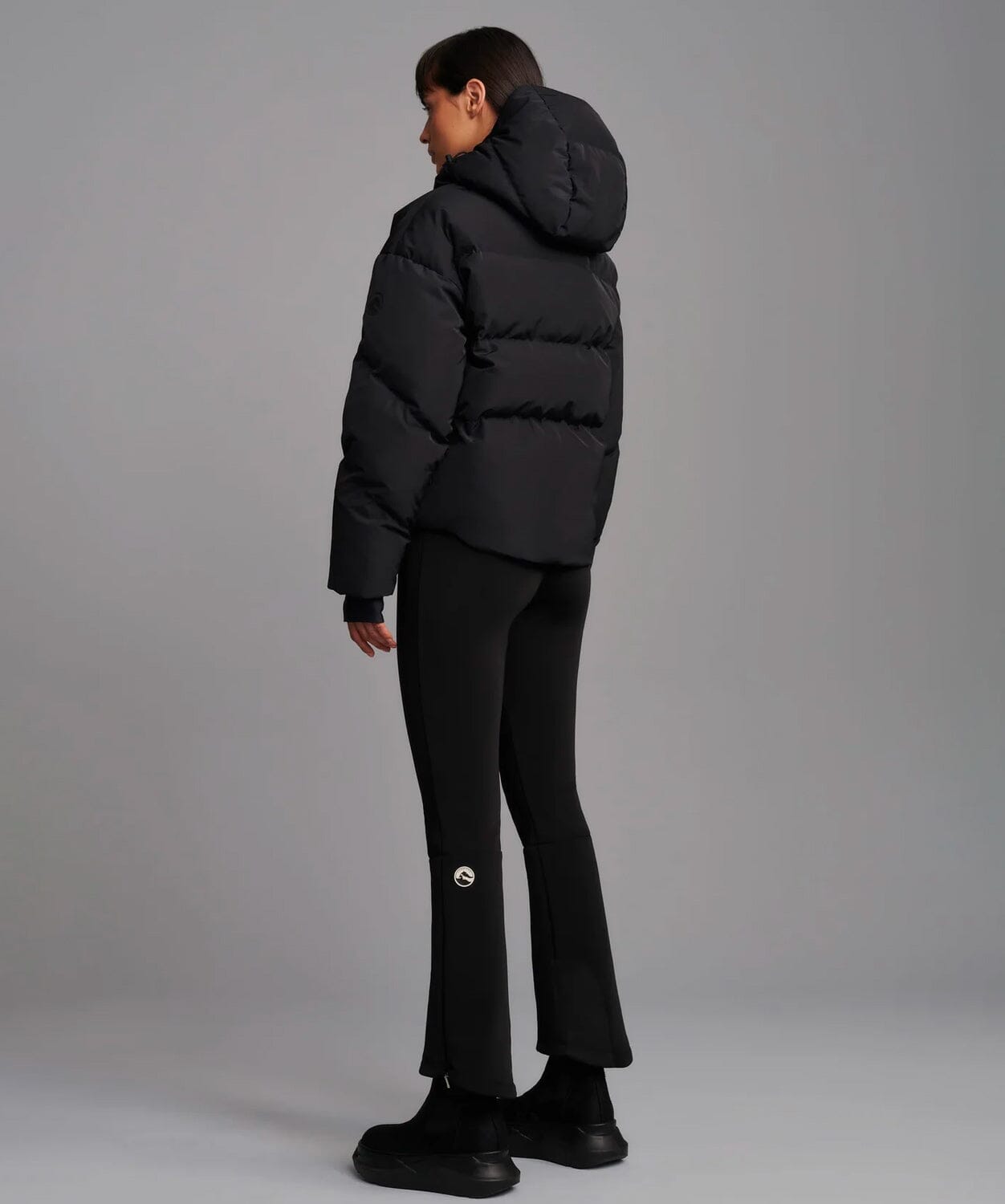







Cordova Monterosa Ski Jacket
This slope style jacket is a must-have for any serious skier, complete with all the bells and whistles. When paired with the St. Moritz pant, its color blocking creates a stylish and modern look. On and off the slopes, she'll effortlessly exude alpine glam.
- Water Resistant Shell
- Duck Down Insulated
- Waterproof Zippers
- Detachable Belt
- Interior Pocket
- Sleeve Gaiters
- Made in Romania
Machine wash cold, gentle cycle. Do not tumble dry. Do not bleach. Cool iron when needed. Gentle dry clean.
Shell: 100% Polyester
Filling: 90% Duck Down, 10% Feathers
Lining: 100% Polyamide
This slope style jacket is a must-have for any serious skier, complete with all the bells and whistles. When paired with the St. Moritz pant, its color blocking creates a stylish and modern look. On and off the slopes, she'll effortlessly exude alpine glam.
- Water Resistant Shell
- Duck Down Insulated
- Waterproof Zippers
- Detachable Belt
- Interior Pocket
- Sleeve Gaiters
- Made in Romania
Machine wash cold, gentle cycle. Do not tumble dry. Do not bleach. Cool iron when needed. Gentle dry clean.
Shell: 100% Polyester
Filling: 90% Duck Down, 10% Feathers
Lining: 100% Polyamide
Cordova
Cordova is a ski and après apparel brand for women who love to explore rich illustrious environments and like to feel beautiful while doing it.
See Collection
Tech Info
Machine wash cold, gentle cycle. Do not tumble dry. Do not bleach. Cool iron when needed. Gentle dry clean. Shell: 100% Polyester Filling: 90% Duck Down, 10% Feathers Lining: 100% Polyamide
Warmth Rating
Staying Warm
In general, padded jackets are warmer but less versatile than shell jackets, which have little or no insulating material.
The story goes that natural down insulation is less bulky than synthetic padding but loses its thermal properties when it's wet, whereas synthetic insulation works better when wet but tends to be more bulky and not as easy to compress into a small package. However, newer forms of synthetic padding are less bulky and more compressible, mimicking down, and may even be stretchy and breathable.
There are two types of scenarios when a skier purchases a jacket.
Skier one: Likes to ski moderately to hard and can get warm when doing this.
We recommend either a waterproof and breathable shell, paired with an insulation jacket. This allows you to stay warm when its a cold day. Or shed the insulation jacket on a warm day to utilise the light properties of a shell jacket.
Pros: You have a second functioning jacket which you can walk around town with or use a light travel jacket.
Brand suggestions:
- Peak Performance
- Black Yak
- J.lindeberg
Cons: Purchasing a shell outer jacket and and insulation jacket can put some people off.
Skier two: Can ski comfortably around doesn't like to push to hard and wants to wear the jacket to Apres ski.
We recommend a Down or Primaloft insulated jacket. These provide the highest level of warmth around your vital organs.
Pros: Warm and stylish jackets
Cons: You can get to warm depending where you ski.
Brand Suggestions:
All brands make these jackets just look for an insulated jacket.
water proofing
Let's talk waterproofing and how the scale works.
Waterproofing is measured in numbers; 20k for example. The number refers to millimeters and the amount of pressure the fabric can stand before water starts to leak through. The easiest way to paint the picture is if you imagine 20 000 millimeter hollow tube. Let's now take that tube and place it on a 20 k fabric. If we then fill it up with water, the fabric will not let any water pass through. If this would have been a 15 k fabric though, you can probably imagine what would have happened instead? This is what the number means, but that's not how a jacket is used.
So, what does different numbers means to you and how to use our 1-5 scale?
1: 3000mm ( Water Resistant )
Entry level - 3000mm is still considered waterproof but won't last for more than light rain.
2: 5000mm ( Snow Proof )
If you ride in cold and clear conditions, you can get away with this level. We don't recommend wearing this when the bad weather hits (unless you like being cold and wet).
3: 10 000mm ( Waterproof )
Wear this is you like long days on the mountain, even when there's bad weather. 10k is a good level.
4: 15 000mm ( Wateproof )
Rain and wet snow don't stand a chance with this. If you live in wetter climates (Australia we're looking at you) 15k is a good, if not great choice. It takes a lot to pass through the membrane.
5: 20 000k and up, also known as (Keep You Dry In Your Own Shower k)
If you enjoy the outdoors, skiing backcountry or need to be prepared for everything situation, you should be looking at 20k and up for waterproofness and breathability. You'll thank us later.








